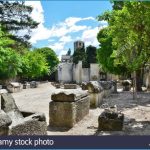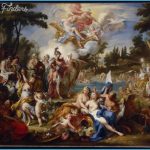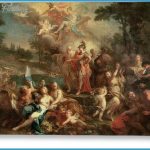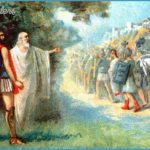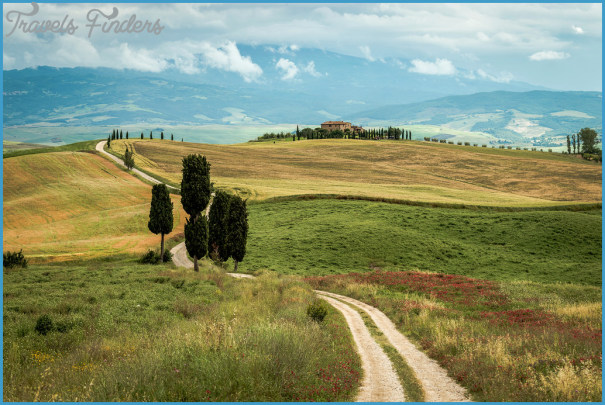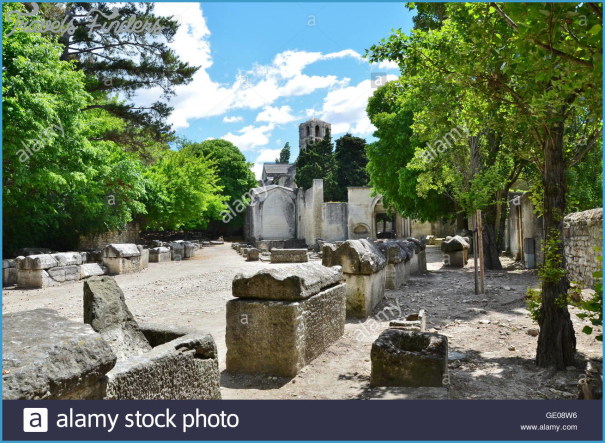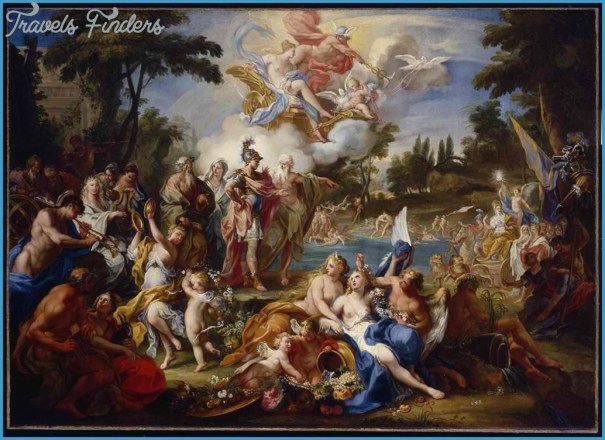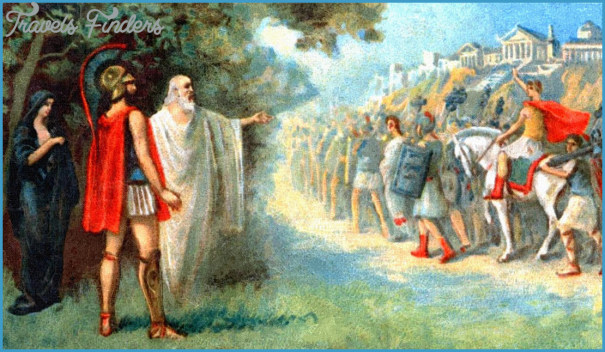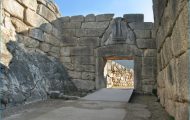As Tartarus became more democratic’, so Elysium (or more properly the Elysian Fields), once the exclusive domain of heroes, increasingly admitted the souls of the mundanely virtuous. Its location too shifted over time. Hesiod sited it near Ocean’s shores on the Islands of the Blessed, where: happy heroes live. Wheat-bearing earth produces for them fruit as sweet as honey, which ripens three times every year, far from the immortal gods. Cronus rules them – Zeus, the father of gods and men, released him from his chains – and they enjoy equal honour and glory.
To Homer, the Elysian Fields were equally remote: There men live lives completely free from labour. There is no snow, no gale, no thunderstorm. Rather, Ocean cools men with soft-singing breezes from the west.’ Pindar imagined a similarly idyllic scene, where his patrician patrons could continue to enjoy their earthly pleasures: In meadows outside their city red roses bloom and trees, fragrant with incense, weighed down with golden fruit. Some amuse themselves with riding and wrestling, others with draughts and the lyre.’ Developing the relatively common idea of metempsychosis (the transmigration of souls, where the dead are reborn as humans or animals), Pindar suggests that the virtuous experience the cycle of death and rebirth three times before being automatically admitted to the Islands of the Blessed. The idea probably evolved in Mystery religions, such as those at Eleusis. Indeed, Elysium’ and Eleusis’ may both come from eleuso, I release’ (from suffering). In Frogs, Aristophanes explores this concept, imagining a party of dead Eleusinian initiates singing hymns to Iacchus, the god who is leading them to Elysium Leaving Hades Plato’s Socrates believed in reincarnation, too.
The Elysian Fields Photo Gallery
Advocating a virtuous life, he agreed that man’s soul is immortal. At one point it reaches a conclusion, which we call “dying”; at another it is reborn; but it never perishes.’ However, to experience rebirth, the soul must first leave Hades and erase all memory of its time there and its former lives. This it achieves by drinking from another of the rivers of the Underworld: Lethe (‘Forgetfulness’).
Metempsychosis and reincarnation, however, belong to the worlds of metaphysics and philosophy more comfortably than to mythology. In Greek legend only a very few return from Hades with their memories intact. These are the heroes who have made the journey to the Underworld while still alive: Heracles and Theseus, as well as Odysseus. And Orpheus, who emerged from Hades to sing beside the waters of the Helicon ben-eath the snow-capped peaks of Mount Olympus at Dion, where this blog began.



